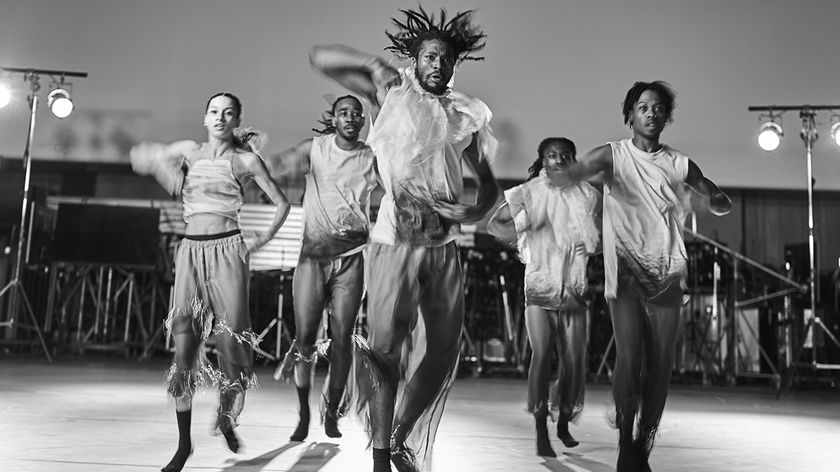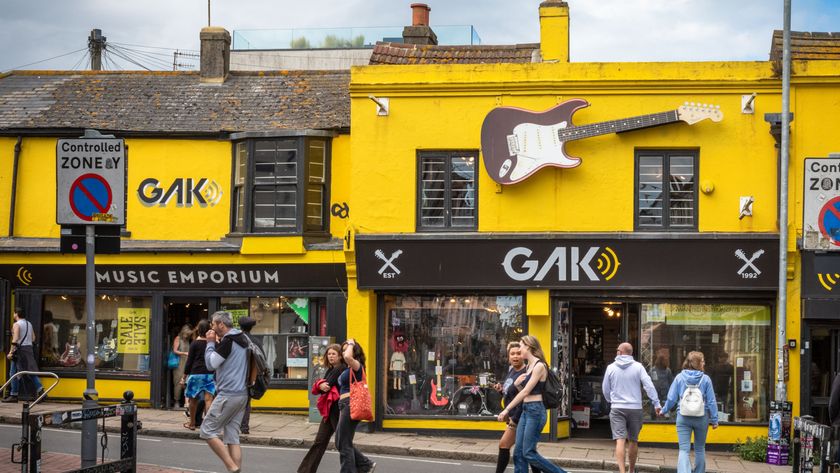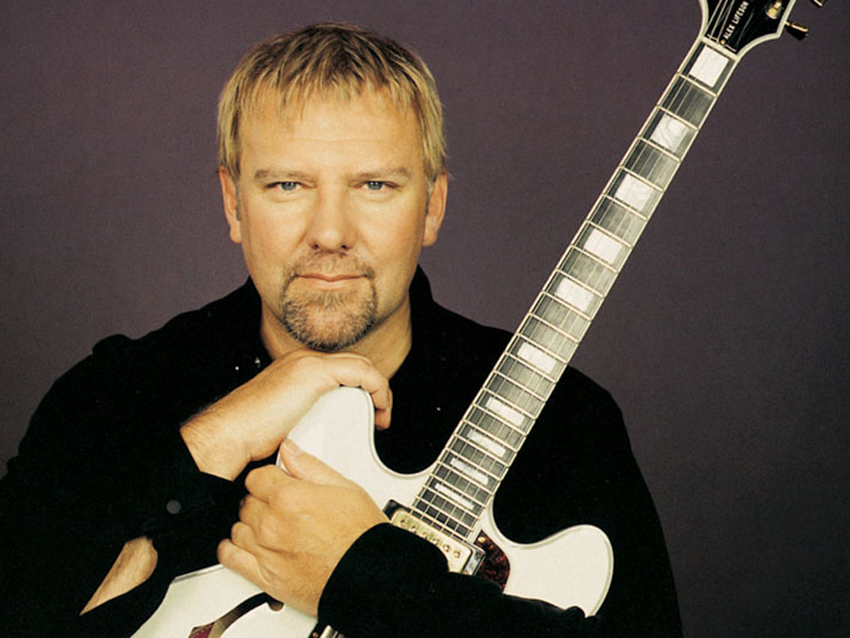
Something weird is happening - Rush just got cool. Their last album, Snakes & Arrows, has received glowing reviews - from critics, mind you, always the band's bete noire - and their current tour, a sold-out victory lap of arenas, is also drawing rave notices.
Not only that, they've even taken the time to show up on US TV, their first such appearance in 33 years, on the hipper-than-hip The Colbert Report, during which their good-natured banter seemed to surprise even the quick-witted host, Stephen Colbert.
If you think Alex Lifeson is taking all this in stride, think again. "It's a fabulous time in my life," the 54-year-old guitarist says. "The thing is, I don't take anything for granted anymore - my family, my music, you name it. Middle age is working just fine for me - and the band."
A middle-aged Rush needn't be a bad Rush, and Lifeson seems to think the band's best days are still ahead of them. "When I hear the sound of the new album, I feel like we're a new band," he says. "Every note we play has a purpose. The thing is, we've experienced so much. A lot of bad, sure, but mostly great things. And we have the best fans in the world. We never lose sight of the fact that every second of music we make is something they're going to listen to. We take that very seriously - even if we have a lot of fun doing it."
Aside from his hard-to-pronounce last name, what made you decide to work with producer Nick Raskulinecz on Snakes & Arrows?
"Well, that was the reason: his name. No, really, though, we loved what he did with the Foo Fighters. Originally, we talked to a few producers, but the vibe wasn't there - not totally. And then I guess Nick heard we were getting ready to record and he told his management, 'I've gotta do it! No matter what, I have to work with Rush. Get me a meeting!' Crazy, genuine enthusiasm - we'll take it.
"Nick flew up and met with Geddy and me. He had such exhuberance and true passion for making music; a real thoughtful guy whose energy was infectious. Geddy and I looked at each other and we could tell we'd have a good time working with him. And we were right: There wasn't a single moment of tension or stress throughout the recording; every day was a joy to go to work."
Get the MusicRadar Newsletter
Want all the hottest music and gear news, reviews, deals, features and more, direct to your inbox? Sign up here.
But is that necessarily a good thing for making an album? Doesn't a little dramatic tension push you out of comfort zones and into unexplored areas?
"I know what you mean. One doesn't want to feel too contented; you have to feel challenged by the music. But Nick did push us - sometimes in ways we never expected."
How did he push you as a guitarist?
"This is tough...See, I was so focused - I'm not saying the other guys weren't - but because this album was acoustically written, I was so hot going in. Writing a lot of the songs on the acoustic offered me a wonderful way to sketch out the album; I knew that if everything worked on the acoustic, everything would be ten times more powerful on the electric."
Do you guys cut proper demos before recording the actual album?
"Oh yeah. Our demos sound like pretty good records. Geddy has a Logic recording system in the writing room in his house, and we go in there and work things out. By the way, he lives five minutes away from me. Can you believe that after 40 years we live so close together? Anyway, we have a great system for writing: We work three days a week from noon till six o'clock, then we play tennis or hang out with our families; a lot of times we go out to dinner after our writing sessions and talk about what we've done - a very relaxed pace.
"We tracked the record at this wonderful place called Allaire Studios in the Catskills. It's a great studio with tremendous views of the mountains - very inspiring. Nick came up and threw himself into the situation. A few songs we didn't touch at all, some songs we moved a few things around, and there was one song called Spindrift that we made radical changes to. We were very impressed with Nick: He wasn't afraid to tell us that we had the song all wrong. Most producers are afraid to do that with name bands. Also, he allowed us to re-record anything we wanted, as many times as we wished. A lot of producers these days just want to Pro Tools parts together."
Obviously you have a pantload of guitars. How many did you bring to the studio?
"A 'pantload'...that's funny. I didn't bring too many, actually. My acoustics were...let me think...a Gibson J-55, a Larrivee...and I also used Garrison guitars, six and 12-string. As far as electrics...I think I mainly used my Tele, my ES-335 and this fantastic Les Paul goldtop reissue I have. I tried to keep things relatively simple."
As you said, the dominant sound on the album comes from acoustic guitars.
"Yeah...I was playing a lot of acoustic before making the record and my head was stuck in that world. Plus, I had recently seen Tommy Emmanuel and Stephen Bennett perform, and I was very taken with what they were doing. In fact, Stephen gave me a half capo, which I'd never seen before, and I thought it was really cool. You can move it around but still have open strings - what an awesome little thing! I used it on the song Bravest Face."
One last question: You guys have been together for so long. Have you ever had a good slugfest?
"No, no, no! But it's come close. We don't always see eye to eye; we squabble. Back in the old days when we were touring ten or twelve months out of the year, my God, you get sick of each other; the slightest little thing one guy does can just set you off. But at those times when we do fight, five minutes later we're saying, 'Shit, I'm sorry, man.' We love each other, we love hanging out together, and we really love playing music together - after all these years."
Joe is a freelance journalist who has, over the past few decades, interviewed hundreds of guitarists for Guitar World, Guitar Player, MusicRadar and Classic Rock. He is also a former editor of Guitar World, contributing writer for Guitar Aficionado and VP of A&R for Island Records. He’s an enthusiastic guitarist, but he’s nowhere near the likes of the people he interviews. Surprisingly, his skills are more suited to the drums. If you need a drummer for your Beatles tribute band, look him up.
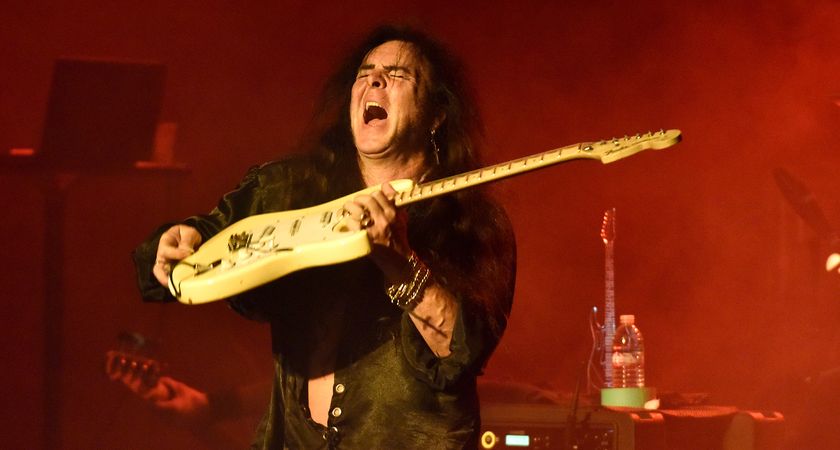
“Those arpeggios... That was the sickest thing I ever heard”: Yngwie Malmsteen on why guitarists should take inspiration from players of other instruments if they want to develop their own style
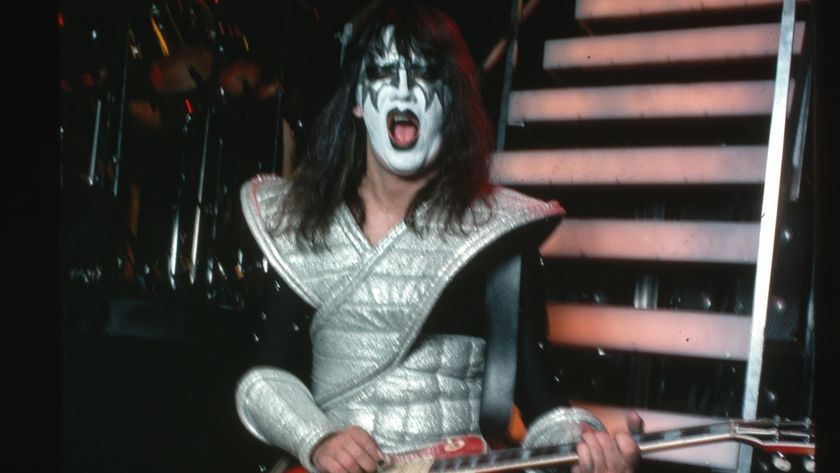
“I used a flange on the main riff and a wah-wah on the solo. I just said, ‘Hit the record button and I’ll let it rip!’”: Kiss legend Ace Frehley on his greatest cult classic song






